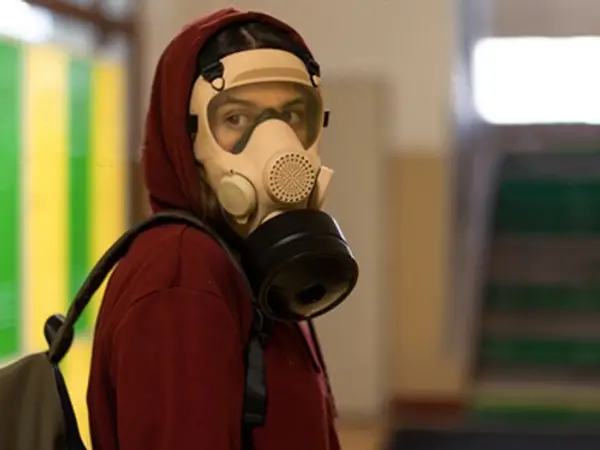Amid global events marking International Women's Day, right groups and organizations have called for investigations into chemical attacks on Iranian schoolgirls.
In a tweet on Wednesday, UNESCO urged thorough investigations and immediate actions to protect schools and facilitate the return of affected students in Iran to their safe and healthy classrooms. UNESCO Director-General Audrey Azoulay expressed deep concern “about the reported poisoning of schoolgirls in Iran over the past three months,” describing the attacks as “a violation of their right to safe education.”
Demonstrators on the International Women's Day in many countries called for solidarity with women's rights protests in Iran as well as with Afghanistan’s girls who are banned from education. In cities, including Berlin, Cologne, Paris and several others, people carried banners in support of the “Women, Life, Freedom” movement in Iran, the antigovernment protests ignited by the death in custody of 22-year-old Iranian woman Mahsa (Zhina) Amini in September.
While the Islamic Republic has been fiercely cracking down on dissent and seems to be involved in serial chemical attacks on schoolgirls that have reportedly affected thousands of students, activists and right groups have called on the international community to pressure the regime over the issue.
Dozens of Iranian women activists and lawyers have launched a petition, calling for the formation of a crisis management taskforce comprised of independent doctors, lawyers and experts as well as parents of the affected students to investigate the poisoning.
The petition said that during the past three months of attacks, more than 2,000 students have been affected with many hospitalized, claiming that these are undoubtedly an orchestrated operation to terrorize society.
In a separate open letter issued on Wednesday, a group of prominent Iranian and Afghan female activists called on the world to hold the Islamic Republic accountable for the attacks and help to end them. They urged governments to acknowledge “the gender apartheid” in Iran under the Islamic Republic and Afghanistan under Taliban.
The signatories, which include opposition figures such as Iranian Nobel Peace Prize Laureate Shirin Ebadi and activist Masih Alinejad and Afghan activist Fawzia Koofi, said in their letter, "Looking at the example of condemnation of apartheid in South Africa by the international community, women living in Iran and Afghanistan are demanding similar responses to end these gender apartheid regimes."
They emphasized that the rights violations by the Islamic Republic and the Taliban are not limited to cases of gender discrimination, but these governments have waged a "more extreme, systematic and structural war" against women to suppress them. In addition to support from the international community, they want the world to criminalize “gender apartheid” in Iran and Afghanistan according to international conventions.
Foreign governments and officials have been vocal about the mass poisonings and other women’s rights violations by the Islamic Republic and Taliban. In a statement on International Women’s Day, US President Joe Biden said, “Despite decades of progress, in far too many places around the world, the rights of women and girls are still under attack, holding back entire communities. We see it in Afghanistan, where the Taliban bars women and girls from attending school and pursuing employment. We see it in Iran, where the regime is brutally repressing the voices of women who are courageously standing up for their freedom.”
The UK and the US, the European Union, and Australia issued sanctions on the Islamic Republic to mark International Women's Day. The UK targeted global violators of women’s human rights, including Iran's morality enforcing outfit and its top official, while the US imposed sanctions on Iranian officials and companies over serious human rights abuses.
Also on Wednesday, Member of the European Parliament Hannah Neumann said the Parliament will debate the poisoning of schoolgirls in Iran Wednesday next week, followed by a resolution, adding, “This provides another important opportunity to raise awareness about the repression in the country -- and the brave opposition to it.”
On Tuesday, 20 prominent Iranian lawyers and human rights advocates has issued a joint letter, calling on the WHO, the UNESCO, the UNICEF and the International Committee of the Red Cross to immediately visit Iran and probe into the serial poisoning of schoolgirls.
